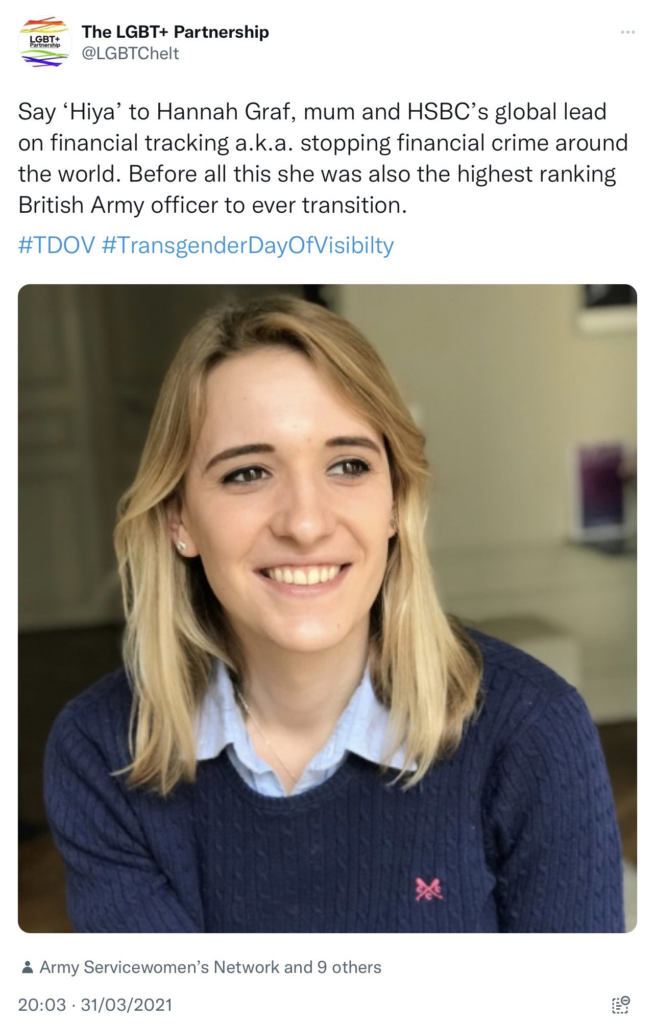Originally a comment by Your Name’s not Bruce? on Are you now or have you ever been a diversity statement?
If you do think that the different men/women ratios in roles such as primary-school teaching and nursing, versus, say, construction work, being a lumberjack and computer coding, are all about socialisation and very little to do with biological differences, then, well, I think you’re wrong.
It would help things immensly if we were looking at this in an environment where socialization was neutral, but we’re not. I think it’s far too early to rule out socialization. Horribly naive in fact. Even without the subtle (and not so subtle) coaching and influence of even the most well-meaning and enlightened parents, there’s still the rest of the world to deal with outside the small bubble of progressive parenting. The classroom, the schoolyard, the shopping mall, the internet, all have their lessons to pass on, some overt, others less so. You can’t prevent children from seeing and absorbing these influences, however good and non-sexist a parent you are. You can teach your kids how to swim, but they’re still going to get wet. The values, attitudes, and expectations are out there, and will have to be countered and reacted to; even if resisted successfully, it’s still a strain, a burden and yes, an influence all the same. It’s all “socialization,” even if you do not adopt the unacceptable mores in which you find yourself immersed. It’s still a current you have to swim against, one that requires effort, focus, and energy that could have been directed elsewhere had they not been pushing against you. Sure struggle can “build character,” but needless, pointless, bloody-minded idiocy can be a fucking drain, too. The current is wide, and it is constant, and it is strong. Pink Lego is is not value neutral. It’s a physical manifestation of the cultures demands and expectations, coded into a toy. But sure, let’s just dismiss socialization as a factor that has an impact on the sex ratios in jobs and careers.
Women haven’t caught up with men in so many ways in the “developed world” and if you look at the situation from a global perspective, things are even more tenuous for women. Until women get equal pay, equal access to and possession of property and wealth, reproductive choice, supportive childcare, and girls get equal access and provision for education, nobody will be able to run the experiment. We still have cultures where some adults would rather let girls die rather than escape a burning building without modestly covering their heads, that would kill their own daughters if they “dishonour” their families, that will let women die before aborting a doomed fetus, where the police put more effort into prosecuting tweets and limericks than rape. What messages does this send to girls and women in these socities? When do we level this playing field? How free are women in any of these cultures? Maybe we should work out this kind of life and death calculus before we decide that we can safely disregard the influence of socialization in a woman’s decision to become a teacher rather than a lumberjack?
But wait, ther’s more. now women are having to fight a rearguard action against the encroachments of trans activists before they’ve achieved parity with men generally. Another current to fight against, another drain on time energy, and attention. The very word “women” has been declared up for grabs by men claiming it as their own and huge swathes of government, media, and industry are helping them. Children are lured into life long medicalization, stunted development and sterility, again with the enabling hand of powerful, influencial institutions paving the way. Telling kids they can change sex is “socialization” too. Too many kids, and their parents are falling for these blatant lies before we’ve even stopped telling the more subtle and pervasive lies of sexist, patriarchal sex roles that start with pink or blue baby booties. We haven’t acheived justice yet, but are all too eager to swallow madness. These are sex roles with a vengeance. Again, girls are learning lessons in real time about their worth and value as human beings from school boards, universities, sporting bodies, the media and more, who all allow and encourage male invasion of female sports and facilities. It’s a wonder there aren’t more girls trying to flee femaleness when they can see that their rights are so easily violated and cast aside in the interests of male feelings. And if they dare to say “No?” Welcome to pariahhood, Karen. Who wouldn’t rather be special and lionized than worthless and vilified? Not everyone has the strength to fight this kind of battle, to swim against this current. Children shouldn’t have to. But sure Coel, let’s pretend that we can just say that it’s all down to underlying, biological, sex-based preferences, and stop worrying about the the wrongheaded belief that occupational outcomes have anything at all to do with the influence of the cultures that kids are brought up in.
Note: YNnB followed up that comment with “Rereading my post above, I’d like to apologize in advance to Coel for my rhetorical excess in ascribing to him an all or nothing, either/or nature/nurture argument which he has not. I still think he’s far too dismissive of cultural influence, and I think we’re a lot farther from having any sort of control group than he thinks.”





